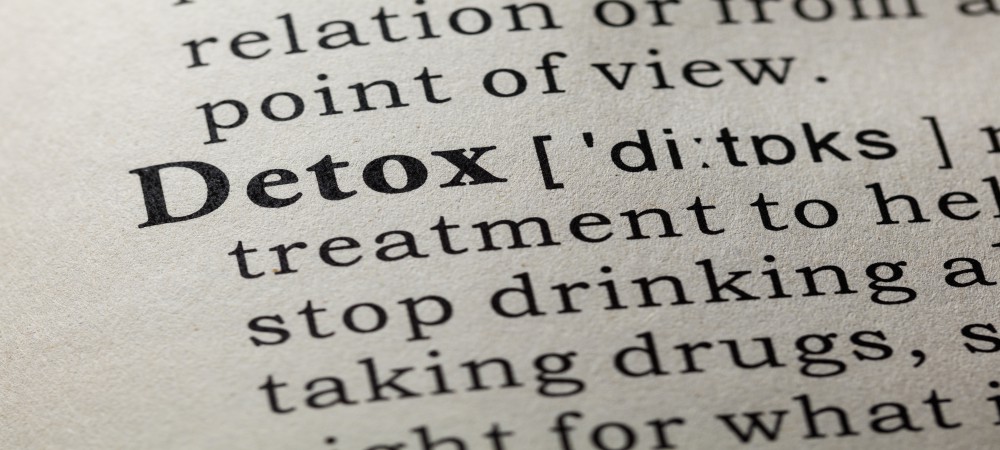Many people embarking on their sobriety journey always have many worries and questions. One of the things they worry about is what to expect during in-patient detox. This is understandable because detoxification is the first step in treating addiction. Hence, if you are trying to stay away from abusing drugs or alcohol, it’s normal to be curious about what exactly it involves.
If you find yourself in these shoes, you will find all the answers you need and more in this article. Here, you will find a detailed review of all the processes during in-patient detox.
We will also discuss some of the factors you have to consider during your journey to recovery from addiction. The information you find here will be very beneficial to you and anyone on the recovery path. Keep reading to find out why.
Knowing What Detox Is
Before knowing what to expect during in-patient detox, it is important to understand what it is. If you are addicted to drugs or alcohol, detox is the first step to your addiction recovery. It is the process through which your body removes the traces of drugs and alcohol. Hence, detox ensures you are in a good physical condition before beginning your recovery therapy.
When you abuse drugs and alcohol continuously, your body becomes used to these substances. Hence, once you begin to reduce your intake of these substances, you will start to experience severe symptoms. These symptoms are known as withdrawal symptoms.
However, you can manage the severity of these withdrawal symptoms with detox. It helps you go through withdrawal with fewer risks to your health and wellbeing. For detox to be effective, you should allow a trained professional to assist you. The best place to find such assistance is within an in-patient detox facility.
Why Should I Go for In-Patient Detox Treatment?
An in-patient detox center is a facility that houses patients experiencing detox. In these facilities, patients get wholesome all-day care. They have access to medical staff ready to respond to their urgent health requirements within seconds.
During detox, you must manage your withdrawal symptoms effectively. You see, other complications aside these symptoms may also arise. Failure to manage these symptoms and their complications may lead to serious health problems. Hence, the need for in-patient detox centers, where you are assured of getting the best treatment and attention.

Features of In-Patient Detox
After you enroll, here is what to expect during in-patient detox.
Medical Examination
You will be put through a thorough medical examination on getting to the facility. The medical professionals need this assessment to get an accurate outlook of your health needs.
They will find out details about your medical history, addiction history, activities, etc. This evaluation helps them find out about your current physical and mental state.
With this information, they will build a detox plan personalized for you. This detox plan will also ensure you have a firm footing to go on with your recovery after detox.
Getting You Stabilized
After your medical examination, the next aspect of what to expect during in-patient detox is the stabilization phase. This part of in-patient detox aims at ensuring you reach mental stability. It’s necessary to manage the mental health symptoms that come with drug abuse.
The duration of the stabilization phase depends on each patient. It usually lasts between one week to three weeks. If a patient struggles at this phase, it may take longer than usual to get them stabilized.
Related Article: What is the Pricing for Alcohol Detox in Ontario?
Preparing You for What Lies Ahead
This is a crucial aspect of what happens during in-patient detox. Detox aims to help you feel mentally stable and physically healthy. Only in these conditions are you prepared for further treatments you will receive.
You have to understand that a treatment plan that works for you may not work for another person. Hence, detox’s preparation stage educates you on all the treatment options available for addiction recovery. With this step, in-patient detox gives you the highest chance of recovering fully from addiction.
What Withdrawal Symptoms Will I Experience During Detox?
Despite being under medical supervision during in-patient detox, withdrawal symptoms are an essential part of what to expect during in-patient detox treatment. Many of these symptoms are unavoidable. They can become severe and life-threatening, too, depending on your addiction level.
This is why you should enroll for in-patient detox treatment. It helps you manage these symptoms in the best way possible. Some of the symptoms you may experience during withdrawal are:
- Shivering and shaking
- Runny nose
- Nausea, vomiting, and diarrhea
- Headaches
- Fever and/or chills
- High Blood Pressure
- Elevated Heart Rate
- Pains in the bones and muscles
- Abdominal Cramps
- Fatigue
- Hallucinations, Nightmares.
Psychological withdrawal symptoms like:
- Insomnia
- Anxiety
- Irritability
- Confusion
- Intense Cravings for drugs or alcohol
- Agitation
- Depression
- Paranoia
- Lack of Concentration
- Mood Swings
You may experience severe withdrawal symptoms like:
- Delirium
- Hallucinations
- Seizures
The severity of these symptoms depends on each patient’s level of addiction. If you have been addicted for a long time, your symptoms’ severity may be higher.
Withdrawal Medications
One of the features of in-patient detox is withdrawal medication. Medical detox services in Ontario give their patients appropriately controlled medications to help them cope with their symptoms.
You must note that there is no medication for preventing all these withdrawal symptoms. However, some drugs help in easing anxiety and depression. Some other medications help you sleep better, concentrate better, and limit the advent of other symptoms.

Round the Clock Supervision and Attention
Another of what to expect during in-patient detox is the constant supervision and attention you will get from medical professionals in the facility. The support these professionals give to you is important for a successful detox program. Hence, they will always be available and monitor you throughout your detox.
How Long Does In-Patient Detox Last?
There is no stipulated duration for in-patient detox. It should usually last between a few days to two weeks. However, the detox length varies depending on a patient’s unique circumstances. There are also some factors affecting the timeline for drug detox.
- The substance you are detoxing from.
- How long and consistently you have been abusing the substance.
- The quantity of the substance you consumed recently.
- Your withdrawal symptoms’ severity
- How much medical assistance you need.
- If you have any co-occurring disorders.
If you are detoxing from more than one substance, your detox duration may be longer. The reason is you will experience more severe symptoms resulting from combining two or more substances.
Some substances have severe withdrawal symptoms compared to others. Hence, if you continuously take such substances, it will take longer for your body to get rid of their traces.
If you have been abusing a particular substance or substances continuously for too long, it will take longer to detox. This is because you have conditioned your body to use these substances. Deconditioning from them may take longer for you than for someone who just began using them.
Hence, you will find that most long-term drug users or alcoholics always struggle during detox. They also struggle with relapse long after treatment. It’s always best for people in this category to stay in a rehab facility where they are wholly supervised and monitored. They will also need friends and family’s support to break away from their old habits and influences.
If you take a large quantity of substance before your detox, you may struggle with severe withdrawal symptoms. Thus, you may spend a longer time in detox than you should typically expect. People who need more medical attention during detox may need a longer detox program. Medical professionals need to confirm they are in good condition to continue their addiction recovery.
Another factor to consider in answering the question about how long does in-patient detox take is the severity of your withdrawal symptoms. Some withdrawal symptoms are so severe that you may need many months to get over them. Patients with such symptoms need continuous medical attention to scale through.
Patients struggling with co-occurring disorders like mental illness while battling with addiction may have a longer detox than others. These patients have more severe symptoms than a person with no disorders. Hence, they will need more medical supervision and support to survive detox and move on with recovery.
Can I Detox at Home?
You can detox at home, but it is ill-advised to do so. Detoxing at home can lead to hazardous situations and death. You may quit using a substance so suddenly, leading to extreme withdrawal symptoms. Detoxing at home also leads to a high chance of relapse because there is no medical supervision whatsoever.
All you now know about what to expect during in-patient detox shows that you are better off under supervision than detoxing at home. It puts you in the best frame of mind and body to continue your substance abuse recovery.
After Detox, What Next?
When you complete your detox from substance abuse, you move on to the next phase of your addiction recovery. This usually involves progressing to a drug or alcohol rehab program. In such programs, you will receive intensive and thorough physiological therapy. There are two basic addiction rehab programs. These are:
- Inpatient Rehabs
- Outpatient Rehabs
In-patient rehabs require you to live within a hospital or facility. In this facility, you will receive round-the-clock care and attention to help you get through your addiction. In such centers, there are multiple activities set up to help you reach your goal of overcoming addiction.
Even after your recovery, these rehabs have aftercare programs and groups that help you stay sober and avoid relapse. However, you must take part in all the activities and take rehab seriously to attain sobriety. If you don’t do so, you will limit your chances of achieving complete recovery.
In outpatient rehabs, you receive daily treatment and addiction therapy while living your everyday life. Most people who choose this treatment are those with mild addiction or withdrawal symptoms.
They only visit their health practitioner or therapist on set appointment dates to get counselling and medication. Outpatient rehab is not recommended for you if you have been struggling with abuse for a long time or have severe withdrawal symptoms.

Follow-Up Care After Recovery
When you recover fully from addiction, you should take steps to avoid a relapse. This involves joining follow-up care programs and activities that help you stay sober and away from negative influences. Some of these programs include 12-step programs like Alcoholics Anonymous, AA, and Narcotics Anonymous, NA.
Your friends and family also play huge roles in your sobriety. They should support you and be there for you at all times. You must do away with friends who lead you to your old and forgotten ways. Instead, stick with those who continuously encourage you to remain sober and aid you in doing so.
You should also practice the things you learned during rehab and keep up with them. Volunteer for good causes, learn new skills, exercise regularly, eat healthy food, and keep good friends. Attend your counselling sessions and group meetings regularly. Staying sober requires you to be wholly dedicated and committed.
Related Article: What is the Cost of Medical Detox in Ontario?
Conclusion
You should now know all about what to expect during in-patient detox. You also have additional information about what happens after detox. The information in this article should give you a clearer view of detox and addiction recovery. It should also spur you to seek help for your struggles with addiction.
If you are struggling with addiction, you must realize that it is dangerous for your health and wellbeing. Hence, you must decide to take steps to stop the cycle and become sober. Choosing to be sober is the first step. The next step is detox.
If you have taken that decision today, don’t hesitate to contact our detox services. Her at Medical Detox CA, we will provide intensive care and medical support for you during detox. We also ensure you attain mental and physical wellbeing as you progress towards recovery. Give us that call today.

